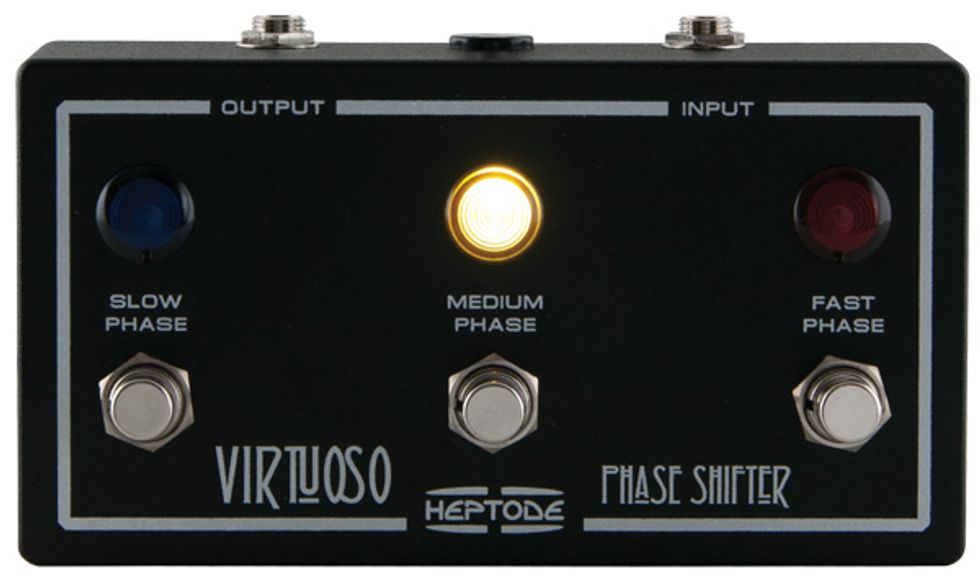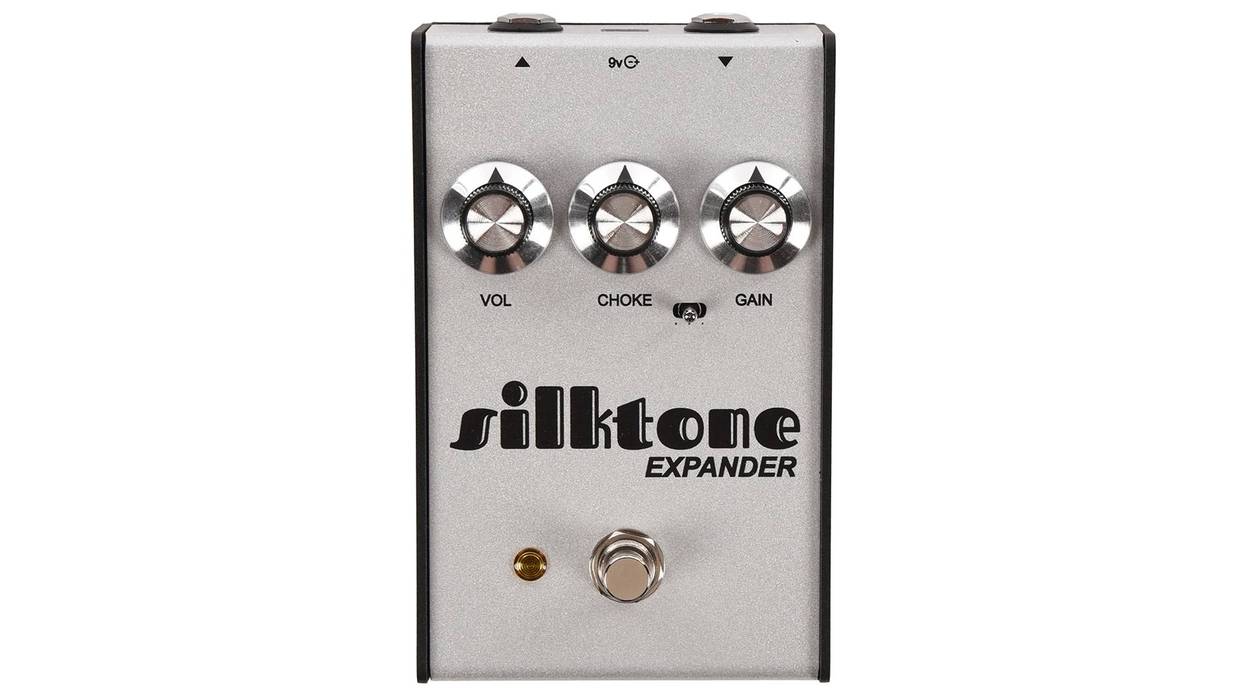Back in 1971, nothing made heads spin like the Maestro PS-1A phase shifter, except perhaps certain controlled substances. It’s the eerie, immersive effect heard on the electric piano in Zep’s “No Quarter” and on tracks by Steve Howe and Ernie Isley.
But the PS-1A was overshadowed by the phasers that preceded and followed it: the Uni-Vibe (the first phaser pedal, forever associated with Jimi), and MXR’s Phase 90, which debuted a year after the Maestro. The PS-1A wasn’t a stompbox, but a bulky external unit with the large plastic switches of the era’s home organs. It’s easy to understand how the smaller, cheaper and great-sounding Phase 90 stole the PS-1A’s thunder. Yet the Maestro circuit remains a stunner, especially when cloned as skillfully as France’s Heptode company has done with their Virtuoso pedal.
Simple but Stunning
The Virtuoso duplicates the sounds and functionality of the Maestro box, but in a smaller, pedalboard-friendly format. (Though at 6" x 2" x 2", it ain’t petite.) Like the original, it has three non-editable presets, accessible here via standard footswitches. Big-ass 1/2" LEDs indicate your current setting. You can power the pedal with a 9V battery or a standard power supply. (Despite the large enclosure, you must unscrew the cover to swap batteries.) Workmanship is solid throughout, with modern components affixed to a securely mounted circuit board. The board includes two tiny trimpots for biasing the effect.
The Virtuoso’s simplicity may surprise players accustomed to newer modulation effects with independent rate, depth, and time controls—the only choices here are slow, medium, and fast. Part of that surprise may be due to the fact that, despite (or perhaps because of) its fixed-preset format, the Virtuoso almost always sounds great.
Ratings
Pros:
A superb clone of a superb phaser. Easy to use. No bad sounds.
Cons:
Only three fixed presets. A bit pricy.
Tones:
Playability/Ease of Use:
Build/Design:
Value:
Street:
$285
Heptode Virtuoso Phase
heptode.com
Spacing Out
The Virtuoso sounds spectacular with my ’63 Strat and Divided by 13 CJ-11 amp. That’s a spanking-bright setup! But I dig how the phasing tames the bridge pickup’s gnarliest overtones without compromising treble detail. The slow setting is particularly lovely—it’s the sort of deep, hypnotic sound you just want to bathe in. The modulation somehow emphasizes ear-tickling highs without getting shrill. Unlike some phasers (particularly digital ones), the LFO sweep never feels clumsy “going around the corners.” Like the original, output is mono only, but man, you’d swear at times that it's a stereo effect. Idly strumming one chord and staring off into space is seldom this gratifying.
The other settings sound fab too. Medium speed has a nice “chewy” quality, thick but not dense. The resonance feels more pronounced at the fast setting, where there’s a filtered, choppier, more cocked-wah-like character.
How do the tones compare to those of a Phase 90? That’s a subjective call! But when I switch back and forth between the two circuits, I usually find the Heptode’s tones more complex and satisfying. The sweep somehow feels less predictably mechanical. And for lack of a more sober description, the Heptode circuit provides a stronger head rush. It’s also a welcome alternative to the Phase 90’s fine but ubiquitous tones.
Verdict
Like the vintage Maestro phaser it faithfully clones, the Heptode Virtuoso delivers lush, psychotropic effects. With only three non-editable presets, the Virtuoso has a limited repertoire—but what it does do, it does magnificently.


















